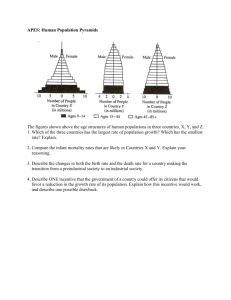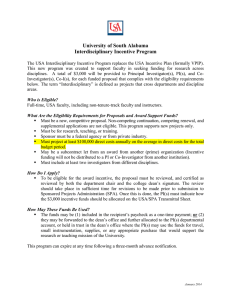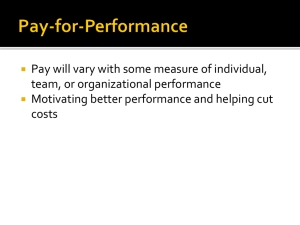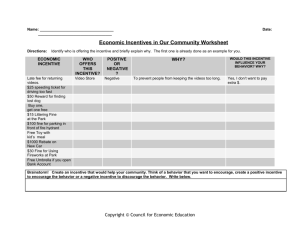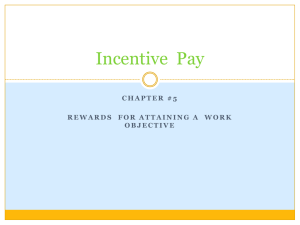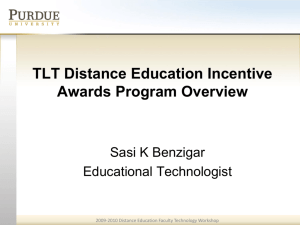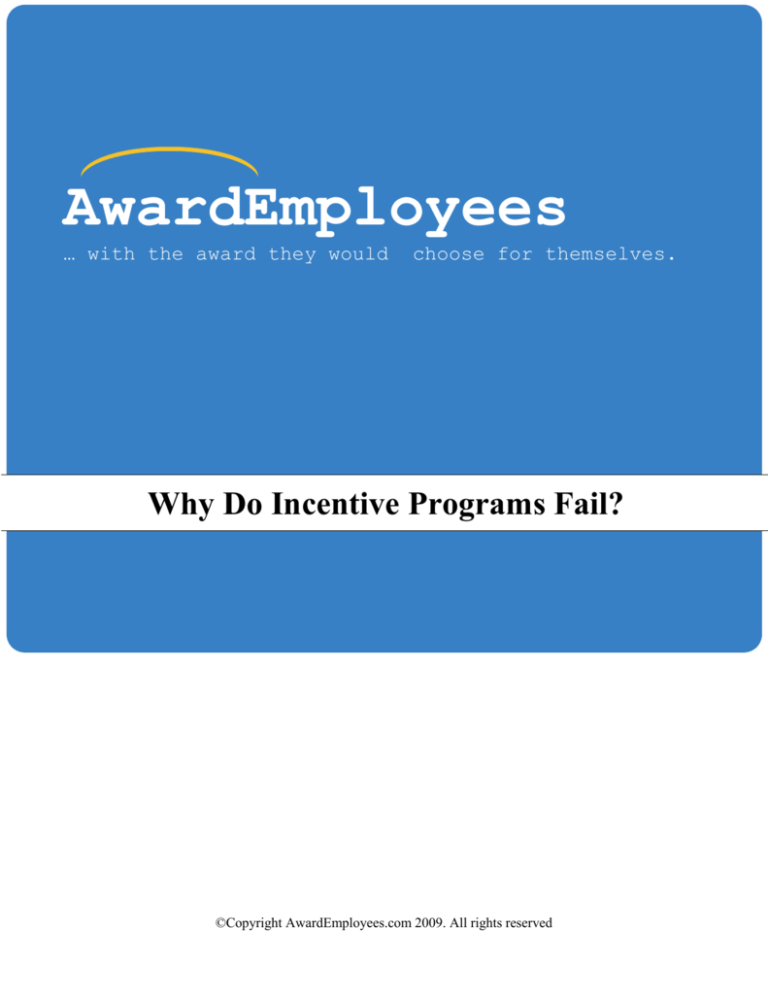
AwardEmployees
… with the award they would
choose for themselves.
Why Do Incentive Programs Fail?
©Copyright AwardEmployees.com 2009. All rights reserved
Top Ten Reasons Why Incentive Programs Fail
Are all incentive programs successful? ... No! In fact there are some studies that show that as many
as 66% don’t produce results or in fact have negative results. Why?
An incentive program is not a panacea for all employee performance issues. It is not a substitute for all
the right things you know to change employee behavior. It is not a substitute for poor leadership or unfair
compensation. But when used in the right context, it will definitely highlight all the other programs that
you implement and can motivate your employees to improve performance.
Like the proverbial story of making the horse drink at the trough, you can avail your employees of all the
programs necessary to make them successful, but with some of them you will not be able to make them
“drink.”
An incentive program is nothing more than a tool to motivate your employees to want to take that first
sip. Once they do, the vast majority will want to continue the experience for the simple reason that there
is something in it for them.
Why Do Programs Fail?
Incentive programs can fail for a variety of reasons. Following are some of the more typical things that
will negatively affect them:
o
If your employees don’t believe the objectives are attainable, they don’t work to achieve it. Make
sure you do adequate financial analysis up front in order to set fair objectives. Nothing will turn your
employees into non-performers more quickly than being asked to do something that's beyond their
reach.
o
When management is not involved in the program and doesn’t promote it or encourage participation,
the program will not be as successful. This does not must apply to program management or
management of the participants of the program, but all levels of management from front line
supervisors to the CEO.
o
If employees don’t think the rules are fair, or they are too complicated to understand, they won’t even
buy into the program in the first place. Make sure your program is as simple as possible and gives all
the employees a fair opportunity to earn awards.
o
Make sure everyone has a chance to earn. Don’t implement a program where only a select few have
any chance or receiving awards. If you want competition, compete your company with your nearest
competitor, not with themselves. You should want everyone to be a winner.
o
Take advantage of the fact that you have a program in place and recognize performance as often as
possible, even daily. Break down long term objectives into shorter term goals and reward
performance with smaller awards on a consistent basis.
©Copyright AwardEmployees.com 2009. All rights reserved
o
When your program is based on chance, it is less likely to produce the continuous behavior change
you are seeking. You will get less than active participation from the majority of your group when
they know that even if they personally perform, they only have a small chance of earning an award.
These types of programs can actually be negative. While they may produce positive short-term
results, they rarely have long-term affect.
o
If the award is not what the employee wants, they don’t work hard to get it. Companies often use
awards that they think are motivational, but really aren’t. Freedom of choice is key in your incentive
program. We have all heard stories, or may have experienced times when people really didn’t care for
the award they received. Many millions of dollars have been spent on incentive awards that are still
sitting in the closet waiting to be used as a gift for the next wedding.
o
The lack of proper measurement and feedback can be a deterrent to a successful program. Having a
program without telling your employees how they are doing would be like bowling with a curtain in
front of the pins. People want to be measured and will respond positively when you let them know
what it is you want them to do and then tell them how they are doing.
o
Lack of communications can be just as harmful to your incentive efforts as anything. As much time
should be devoted to how to communicate your program as possible. This can mean the difference
between a marginally successful program and one that produces terrific results. Take advantage of the
“what’s in it for me” aspect of your program and use communications whenever and wherever
possible.
o
Make sure that the award is commensurate with the effort to earn it. While it is recognized that it
takes three dollars in cash to motivate the same results as one dollar in non-cash, you still need to
provide enough award to make it meaningful to your employee to change their behavior.
Correcting any of the above reasons will not guarantee you a successful program, there are always outside
influences that come to bear. But if you are conscientious in your planning and design and make sure you
are aware of these issues, your chances of success are greatly increased. A study done by the
International Society of Performance Improvement states clearly that properly designed programs will
increase performance.
©Copyright AwardEmployees.com 2009. All rights reserved

